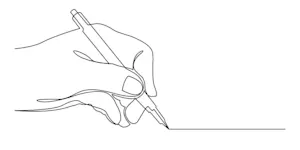What Makes This Word Tick
The word "vacuous" has a certain flair, doesn’t it? It describes something lacking in thought or intelligence, often with a hint of superficiality. Picture a vast, empty space or an expressionless gaze, and you’re getting close to its essence. It captures those moments when there’s just something missing—be it depth in a conversation or substance in an argument.
If Vacuous Were a Person…
If vacuous were strolling down the street, it might be the person who seems thoughtfully distracted, their mind a perfect blank. It’s the one at a social gathering nodding along, not a thought behind their polite smile. Despite this, there's an endearing charm—you can't be mad at someone who means no harm, even if their thoughts are as thin as the air around them.
How This Word Has Changed Over Time
The use of "vacuous" dates back to the 17th century with roots in Latin, meaning "empty" or "void." Over time, it not only kept its literal sense of emptiness but also took on figurative aspects. Now, it’s more likely to point out a lack of meaningful content rather than a literal void, which is a testament to its linguistic adaptability.
Old Sayings and Proverbs That Use Vacuous
Classical proverbs don’t specifically feature "vacuous," but they often get at the heart of its meaning: "Empty vessels make the most noise." This captures the idea that those with little substance often draw the most attention.
Surprising Facts About Vacuous
Did you know that "vacuous" is frequently employed in film reviews? Critics adore it when pointing out performances or plots with more dazzle than depth. It’s one of those words that easily cuts through the noise, pinpointing precisely what might be missing in a blockbuster hit.
Out and About With This Word
Walking through a modern art gallery feeling like you just don't get it? That vacuous sensation might creep in as you stand puzzled before a canvas. Or perhaps in a bustling city square where the grand architecture feels like it's missing a heartbeat.
Pop Culture Moments Where Vacuous Was Used
Hollywood isn’t immune to "vacuous" verdicts. Movies or TV shows often receive this label when they sacrifice story or character development for spectacle. Critics wield it with a flourish when the glitter just doesn't translate to gold.
The Word in Literature
"Vacuous" is at home in literary fiction, especially in narratives scrutinizing society's follies. Picture a satirical novel where characters engage in empty chatter, or a dystopian future where human interactions feel hollow. Such settings are fertile ground for "vacuous" to make an impactful appearance.
Moments in History with Vacuous
The Roaring Twenties might spring to mind, where lavish parties epitomized opulence, yet a deeper emptiness lurked amid the jazz and champagne. Or the excesses of certain historical regimes where "vacuous" ideologies led to hollow rhetoric.
This Word Around the World
In French, "vacuité" holds a similar meaning, touching on emptiness or hollowness. Across various languages, the concept translates but tends to keep the idea of an absence or a lack thereof. In some cultures, gestures or expressions might replace the need for this exact word—like the Italian shrug paired with a "boh!"
Where Does It Come From?
"Vacuous" derives from the Latin word "vacuus," meaning empty. Its journey through language kept its core concept intact, a fascinating linguistic consistency for a term denoting absence.
How People Misuse This Word
People might use "vacuous" when they simply mean quiet or subdued. It's not just the absence of action; it's the lack of substance or meaning that defines it. A library isn't vacuous—it's simply serene.
Words It’s Often Confused With
Empty: While vacuous can mean empty, it connotes a lack of thought or intelligence specifically.
Inane: Inane refers to silliness or lack of meaning, similar to vacuous but often less harsh.
Superficial: Both suggest a lack of depth, but superficial emphasizes surface over substance.
Additional Synonyms and Antonyms
Synonyms include "empty-headed," "mindless," and "shallow." Antonyms like "thoughtful," "insightful," and "substantive" present a complete contrast, brimming with depth and understanding.
Want to Try It Out in a Sentence?
Here’s a fun thought: "His vacuous smile was like the Cheshire cat’s—charming, yet nothing behind the eyes."
















